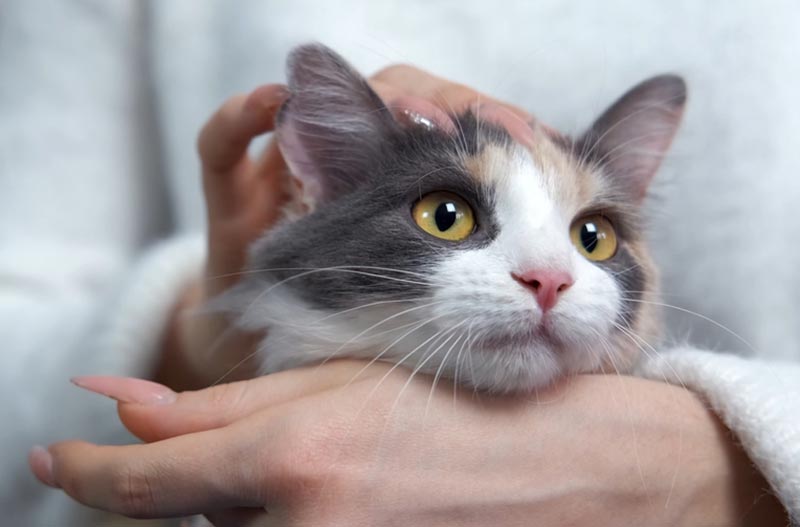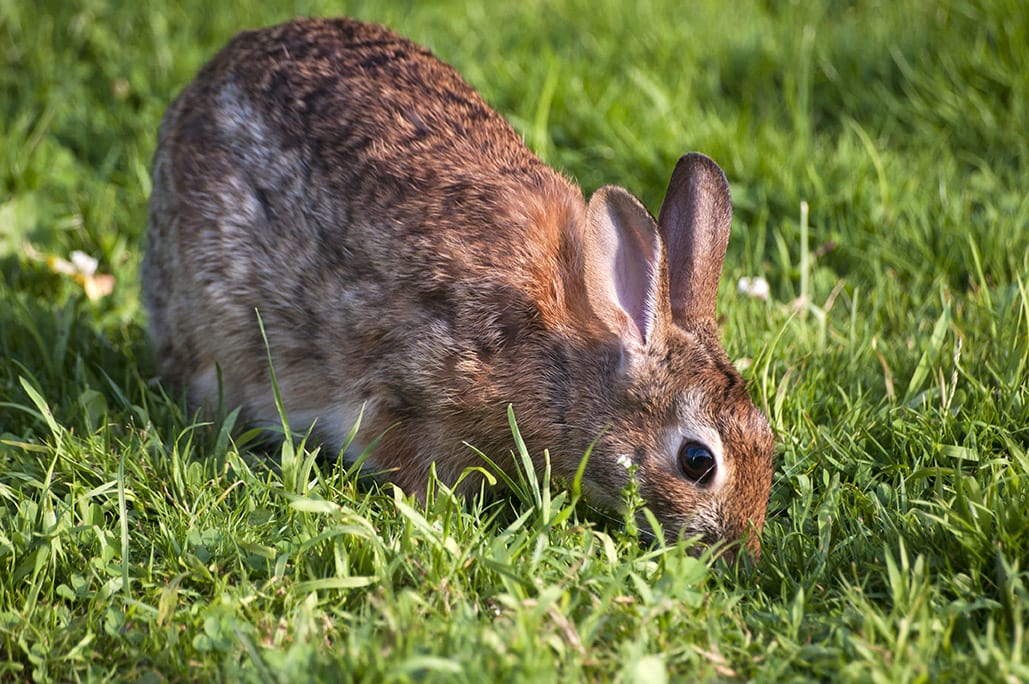VET APPROVED

The information is current and up-to-date in accordance with the latest veterinarian research.
Learn more »Click to Skip Ahead
There are few things in the world more soothing and enjoyable than a cat’s purr. Most of us have been graced with a purring cat visiting our laps or just sitting next to us, and it is something that never gets old. A purring cat is not only relaxing for us, but it’s also a wonderful feeling to think that a cat is pleased enough with your presence or their current situation to purr. How cats purr might not be something that you’ve ever thought about before, though. Here’s what you need to know about cat purrs!

How Do Cats Purr?
The mechanics behind a purr are more complex than the ease with which a cat produces a purr may indicate to you. A purr is created when your cat breathes in or out and the air passes by the larynx, also known as the voice box. The cat will create a vibration by dilating and constricting the glottis, which is an area around the vocal cords. As the vibration occurs and air passes by, a purr is created.

Can All Cats Purr?
In a fascinating twist, the general rule is that only cats that cannot roar are able to purr. This is related to the size and movement of the larynx. For cats that can roar, like lions and jaguars, there is a larger larynx that is more flexible and not able to produce the fine vibrations necessary for producing purrs. Their hyoid bone is partially flexible, similar to cartilage, which enables them to roar.
For cats that cannot roar, like domestic cats and bobcats, the larynx is smaller and more rigid, which allows them to produce purrs. A fully ossified and rigid hyoid bone allows stable vibrations for purring. If you ever get the opportunity to visit a big cat sanctuary, you may be lucky enough to catch purrs from a cat you wouldn’t expect it from, like a mountain lion. Overall, mountain lions are the largest cats that can purr, with essentially all smaller cats also being able to purr.
Do Cats Purr Because They’re Happy?
Contrary to popular belief, cats will purr for a large number of reasons, and they aren’t all due to happiness. Cats most often purr because they are happy, content, and feeling safe. However, cats can also purr when they are in pain or stressed. In fact, it’s not uncommon for cats that are in the active stages of labor or feeling ill to purr.
The vibrations of a cat’s purrs have been shown to occur at a frequency that can assist with healing, especially of bones, as well as creating a sense of stress relief. Cats won’t just purr for their own well-being, though. Cats that are in tune with the emotions of their humans are known to lie on their people and purr whenever their humans are sick or injured.


In Conclusion
The purr of a cat is a fascinating thing that requires a very specific anatomical layout to produce. Purring offers a host of benefits, including stress relief, healing, and bonding. Lots of cats can purr, and it isn’t just something that domestic cats can do. It may also surprise you to learn that a variety of animals can produce purr-like noises, including rabbits, tapirs, wallabies, bears, foxes, and badgers.
See also:
- My Cat Is Purring After Giving Birth, Is That Normal?
- Does My Cat Only Purr for Humans? Why or Why Not?
- My Cat Is Breathing Faster When They Purr, Is That Normal?
- https://www.newscientist.com/question/why-do-cats-purr/#:~:text=When%20cats%20breathe%2C%20they%20dilate,larynx%2C%20the%20purring%20sound%20occurs.
- https://www.bbc.com/future/article/20180724-the-complicated-truth-about-a-cats-purr
- https://carnegiemnh.org/cat-chat-101-the-basics-of-domestic-and-wild-vocalizations/#:~:text=Roaring%20and%20Purring,but%20they%20can’t%20roar.
- https://en.wikipedia.org/wiki/Purr#:~:text=Animals%20that%20produce%20purr%2Dlike,and%20as%20a%20defense%20mechanism.
Featured Image Credit: AleksDaria, Shutterstock











